
Case Studies
How They Did It: A Local Data Reporter Covers America’s Deadly Opioid Epidemic
A behind-the-scenes look at how one reporter put together a data-driven story about healthcare workers dying of opioid overdoses in the United States.

A behind-the-scenes look at how one reporter put together a data-driven story about healthcare workers dying of opioid overdoses in the United States.

What’s the global data journalism community tweeting about this week? Our NodeXL #ddj mapping from June 18 to 25 finds a visual story about fixing household stuff by @xocasgv and @GoogleNewsInit, another about fixing political stuff by @Washingtonpost and @paulbradshaw on teaching data journalism.

While journalism funded by interest organizations is still something of a gray zone, the question on the table now is no longer whether, but rather how investigative reporters can collaborate with NGOs, writes GIJN founding member Mark Lee Hunter.
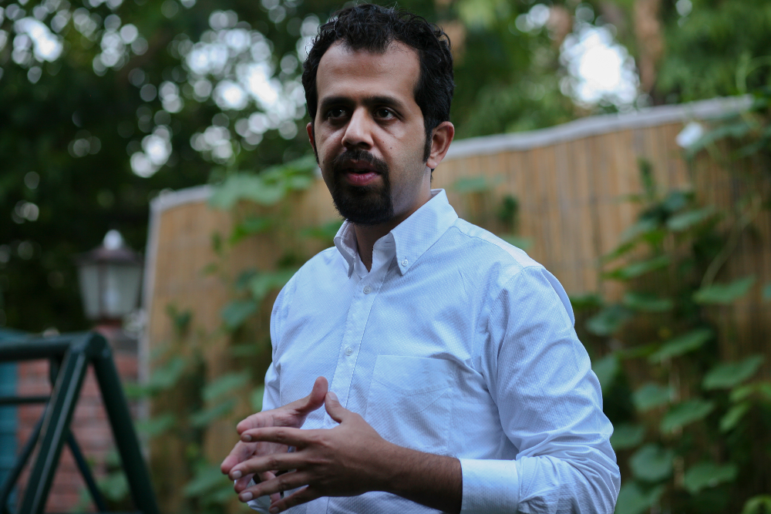
Investigative journalist Taha Siddiqui, who was forced to flee to France recently after a failed abduction attempt, talks about why he left Islamabad and his SAFE Newsrooms initiative which aims to highlight freedom of expression issues in newsrooms across South Asia.
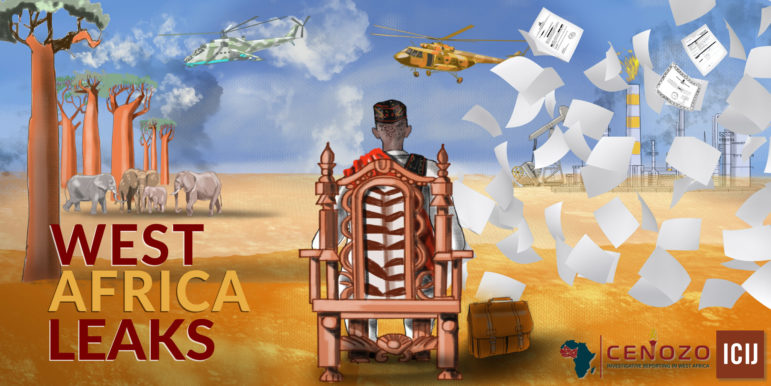
In late May, journalists from CENOZO in West Africa — with support from the International Consortium of Investigative Journalists — published #WestAfricaLeaks, the largest collaboration of investigative journalists in the region, exposing tactics used by regional tycoons, multinational companies and politicians to take their money offshore and out of reach. Here’s how they did it.
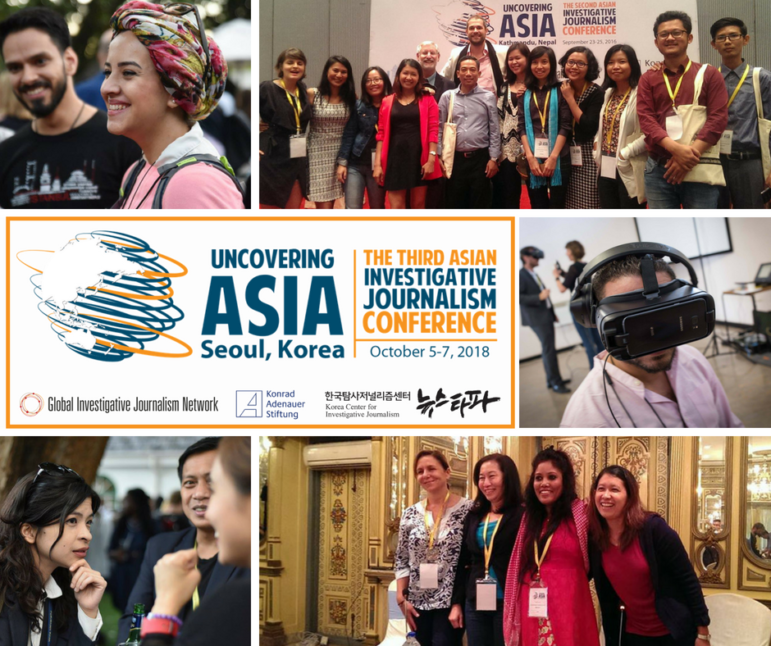
Thinking of joining us at the 3rd Asian Investigative Journalism Conference? Here are 50 great reasons to go. We’re putting together a world-class line-up of top investigative reporters, pioneering data journalists, and experts in law and security. For three days in Seoul, from October 5-7, we’ll share, network, and learn from the best in the business. We’ve got top editors Maria Ressa of Rappler, Steven Gan of Malaysiakini, Wahyu Dhyatmika of Tempo, Yong Jin Kim of Newstapa and dozens more.
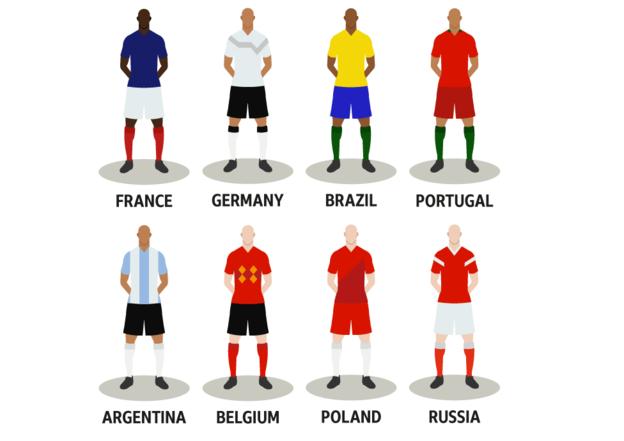
What’s the global data journalism community tweeting about this week? Our NodeXL #ddj mapping from June 11 to 17 finds three data stories about the World Cup, from @BBCSport, @FT and @TspLeute, @guardian looked at at how urban cycling can change the world and @Bastamag explores 40 years of deaths from police interventions in France.
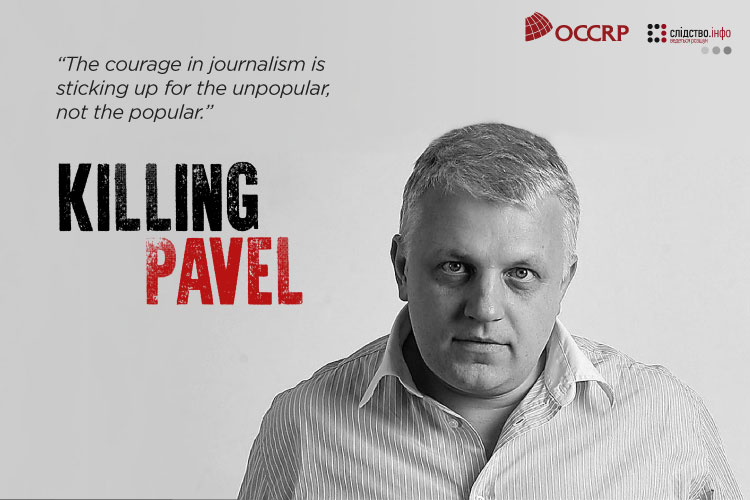
The documentary “Killing Pavel” won the prestigious IRE Medal this weekend. Top Ukranian journalist Dmytro Gnap shares tips for effectively collecting the CCTV footage which played a key role in the investigation.
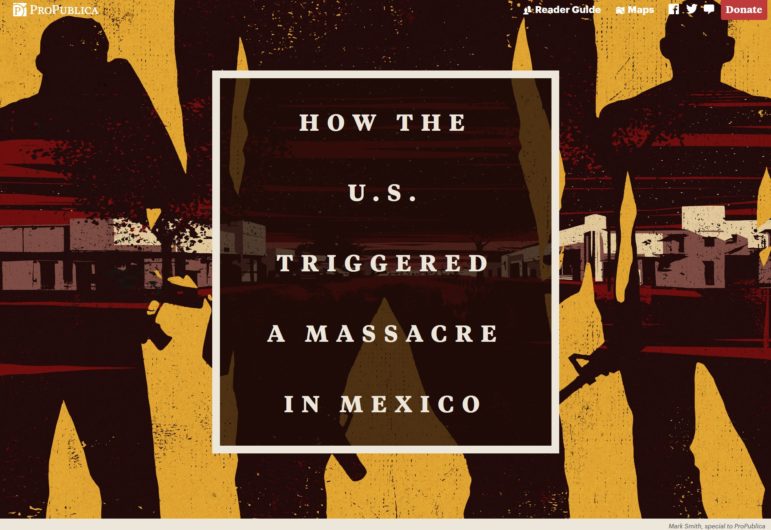
In 2011, Miguel Ángel Treviño and his brother Omar, two of the most wanted drug kingpins in Mexico, sent members of the criminal syndicate Zetas to murder and disappear entire families in Allende, Mexico. ProPublica’s Ginger Thompson spent two years investigating the role of the US Drug Enforcement Administration in the massacre by gaining the trust of the citizens in the town.
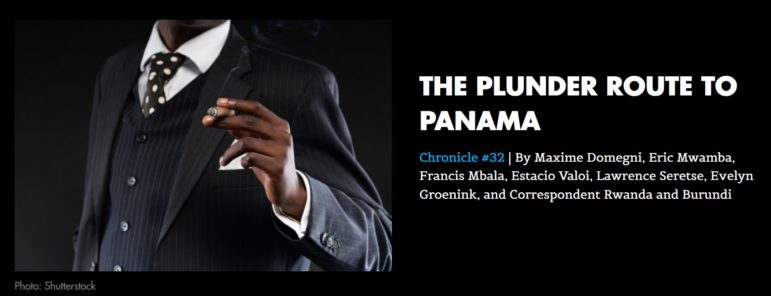
A collective of African Investigative journalists has found that publishing stories about corruption in their home countries doesn’t always put much pressure on those leaders who plunder state resources, but publishing in the countries where their donors live has the potential to hit them where it hurts — their bank accounts.

What’s the global data journalism community tweeting about this week? Our NodeXL #ddj mapping from June 4 to 10 finds an awesome curated list of resources for visualizing music by @Willian_justen, a deep dive into unsolved murders across America by @washingtonpost and @CarbonBrief mapping of the past, present and future of global coal power plants.

As Mexico prepares for national elections this summer, social media is filled with misinformation and disinformation. To combat this, a group of news organizations and civil society groups came together earlier this year to launch Verificado 2018, a collaborative fact-checking and debunking effort.

Investigative journalism is dangerous because it exposes those in power. In the past six months, it has taken the lives of two journalists working within the EU’s borders. Forbidden Stories is showing its strength in picking up where the slain journalists left off.

When the DIG Festival first launched in 2016, it focused largely on Italian documentaries firmly anchored in quality investigative journalism. Just three years and four festivals later, it has grown into an international destination for some of the world’s best investigative documentary filmmaking. Held this year in Riccione, Italy, from June 1 to 3, the jury handed out seven awards, taking viewers from Kyiv to the Congo.
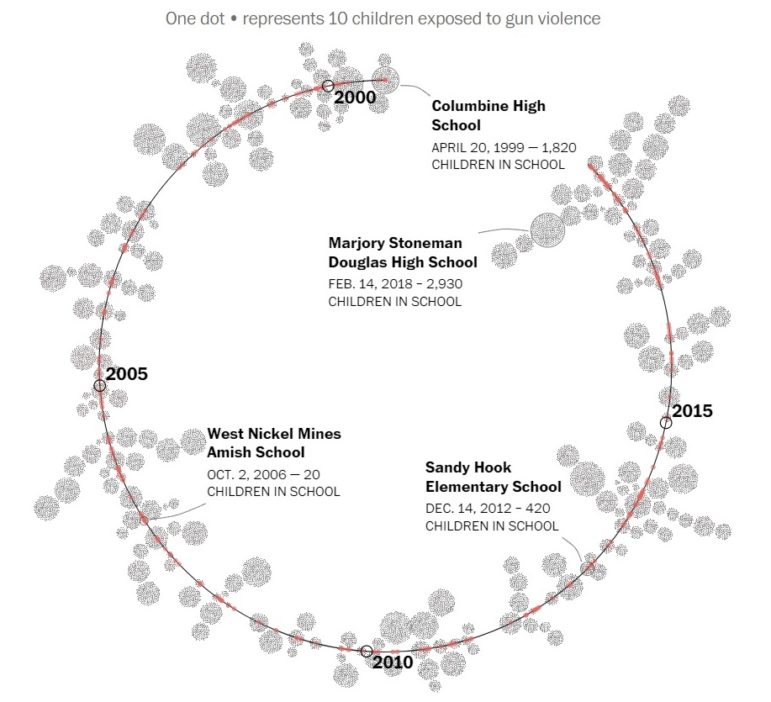
What’s the global data journalism community tweeting about this week? Our NodeXL #ddj mapping from May 28 to June 3 finds @washingtonpost’s alarming data on gun violence in American schools, @vlandham’s experiments with visualizing uncertainty and @GENinnovate with the latest data journalism trends displayed in the 2018 Data Journalism Awards entries.
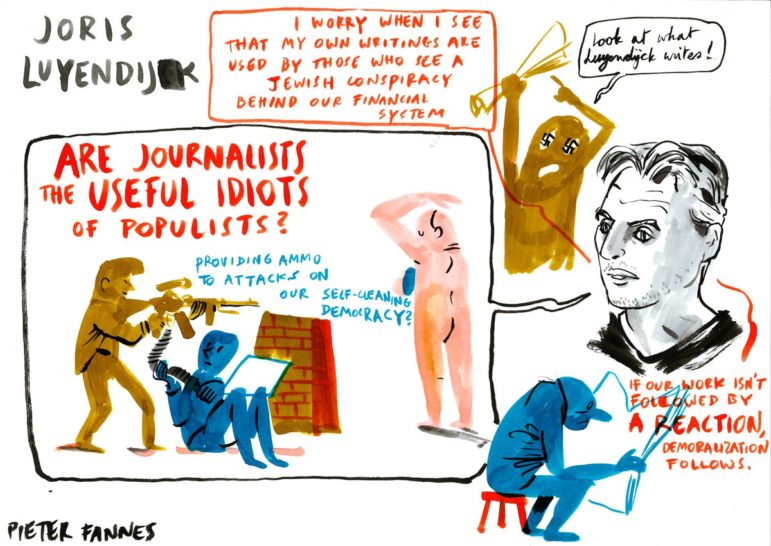
Joris Luyendijk’s keynote speech at the European Investigative Journalism Conference posed an uncomfortable question for investigative journalists. Are we, in our pursuit of exposing wrongdoing, unwittingly putting ourselves at risk of becoming pawns or useful idiots for demagogues, protest parties and populists like Trump?

In part two of this Mojo Workin’ column on developing and producing the story, Ivo Burum focuses on equipment, coverage and audio perspective.
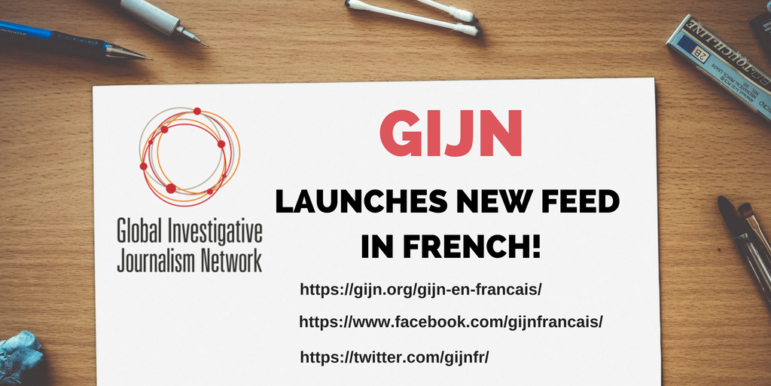
We’re delighted to announce that GIJN has launched a new initiative: GIJN en français. We’ll be sharing the best investigative tips and tools, groundbreaking stories, grants and fellowships, data sets and more.

Mobile journalism expert Ivo Burum is back with a column on the most frustrating part of mojo — developing and producing a story. He offers tips on developing your story idea and sharpening your focus on story structure, character and shots coverage.
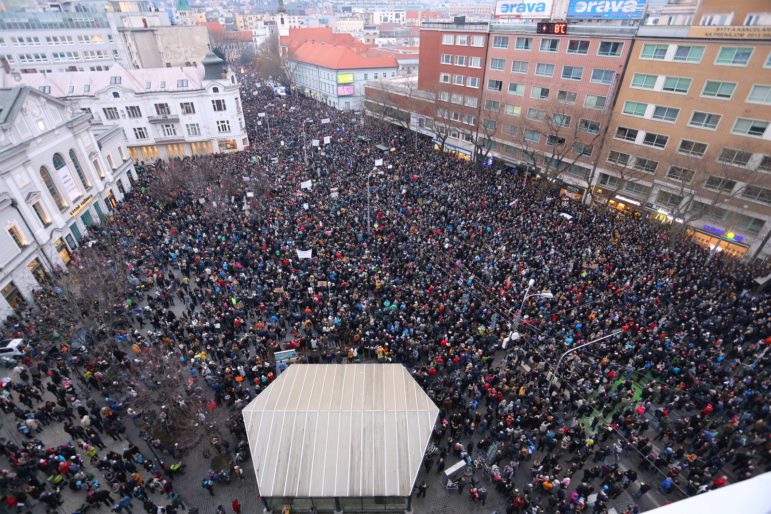
As protests grip Slovakia in the wake of the murder of investigative journalist Ján Kuciak and harassment of his colleague Pavla Holcova, the Global Reporting Centre’s Peter W. Klein writes this open letter to the Prime Minister of Slovakia urging him to respect press freedom and the rights of Holcova and all the journalists who are doing their jobs.
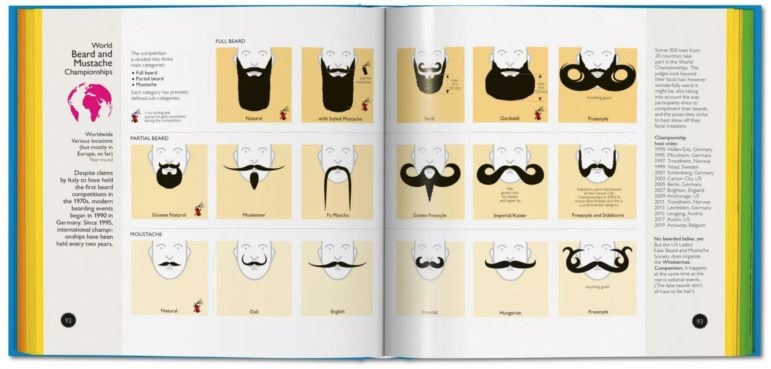
What’s the global data journalism community tweeting about this week? Our NodeXL #ddj mapping from May 21 to 27 finds @nigelblue’s wildly humorous infographic book about crazy competitions across the globe, @Data_Match breaks down the list of gifts given to the president of the United States by foreign leaders and @FinancialTimes looks into the pressures Antarctica faces.

De Correspondent has been tapping into the experience and expertise of its readers to build and research their stories. But instead of one-off engagements with their audience, they are reinventing their approach to the conventional rolodex: verifying their readers expertise and inviting them into conversations surrounding their stories.

There are hundreds of stories in business registries and court documents around the world just waiting for a journalist to uncover them. Emmanuel Freudenthal shares his five tips on finding open-source secrets in Africa with GIJN — helpful guidelines which can be used around the world.
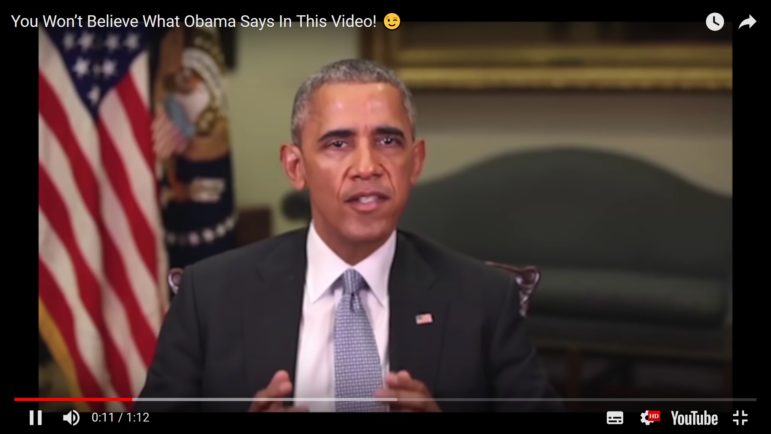
Deep fakes — videos which feature one person’s face on another’s body — are rapidly becoming more sophisticated. Samantha Sunne talked to some of the world’s experts on the techniques which can help you learn the weaknesses of this new phenomenon that’s got everyone talking.

Journalists can increase people’s trust and create a loyal audience by engaging with their readers in the comments section. This guide by The Coral Project has tips on how journalists can best interact with their audience, deal with potential abuse and find real value in the comments.
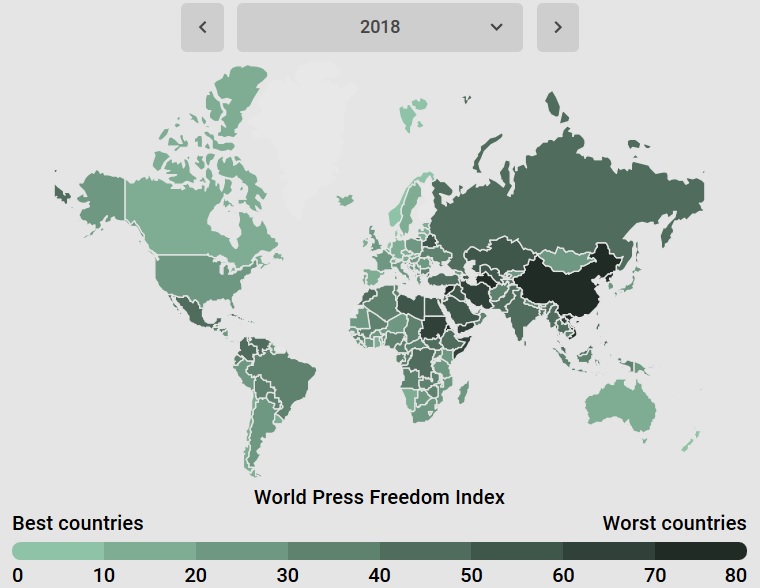
What’s the global data journalism community tweeting about this week? Our NodeXL #ddj mapping from May 14 to 20 finds @FinancialTimes highlighting @NASA data on high risk drought areas across the globe, @infogram juxtaposing press freedom with global peace rankings and @BBCNews showing how smuggling mobile phones is a rampant problem in English and Welsh prisons.
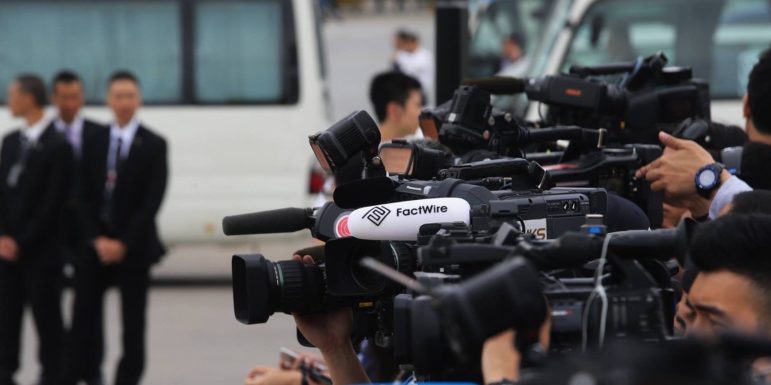
Press self-censorship in Hong Kong has been deteriorating as businessmen behind media organisations increasingly use the press as their business tool rather than for public service. After seeing the public’s disillusionment and distrust of the media grow, investigative journalist Don Ng decided to kickstart FactWire, a back-to-basics news service that focuses on long-term investigations.